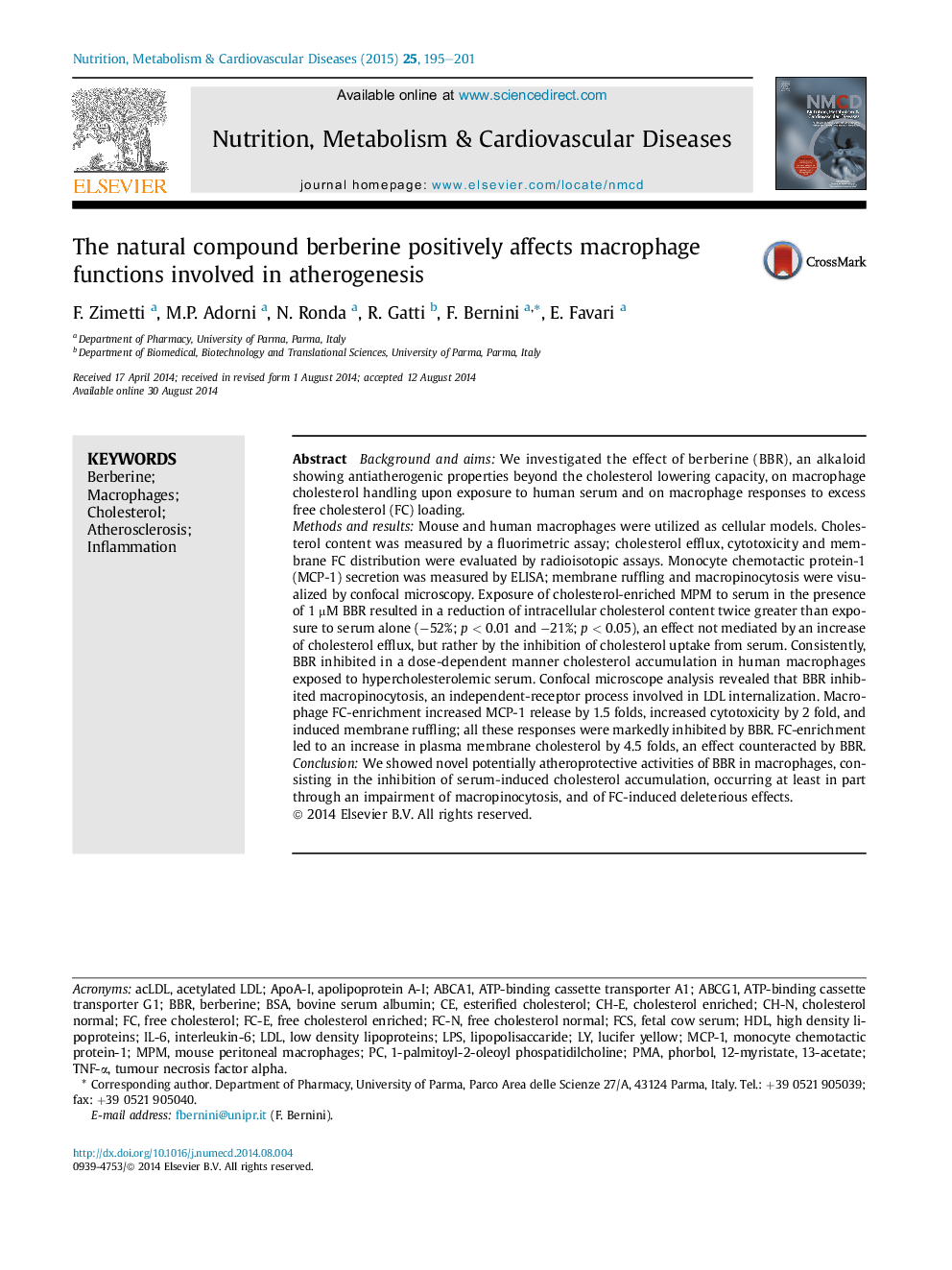| Article ID | Journal | Published Year | Pages | File Type |
|---|---|---|---|---|
| 3001745 | Nutrition, Metabolism and Cardiovascular Diseases | 2015 | 7 Pages |
•Berberine (BBR) improved serum capacity to reduce macrophage cholesterol (C) content.•BBR did not alter macrophage C efflux to serum.•BBR blocked serum-derived C uptake by inhibiting macropinocytosis•BBR inhibited free C-induced cell responses by reducing membrane cholesterol.•We highlighted novel potentially atheroprotective activities of BBR.
Background and aimsWe investigated the effect of berberine (BBR), an alkaloid showing antiatherogenic properties beyond the cholesterol lowering capacity, on macrophage cholesterol handling upon exposure to human serum and on macrophage responses to excess free cholesterol (FC) loading.Methods and resultsMouse and human macrophages were utilized as cellular models. Cholesterol content was measured by a fluorimetric assay; cholesterol efflux, cytotoxicity and membrane FC distribution were evaluated by radioisotopic assays. Monocyte chemotactic protein-1 (MCP-1) secretion was measured by ELISA; membrane ruffling and macropinocytosis were visualized by confocal microscopy. Exposure of cholesterol-enriched MPM to serum in the presence of 1 μM BBR resulted in a reduction of intracellular cholesterol content twice greater than exposure to serum alone (−52%; p < 0.01 and −21%; p < 0.05), an effect not mediated by an increase of cholesterol efflux, but rather by the inhibition of cholesterol uptake from serum. Consistently, BBR inhibited in a dose-dependent manner cholesterol accumulation in human macrophages exposed to hypercholesterolemic serum. Confocal microscope analysis revealed that BBR inhibited macropinocytosis, an independent-receptor process involved in LDL internalization. Macrophage FC-enrichment increased MCP-1 release by 1.5 folds, increased cytotoxicity by 2 fold, and induced membrane ruffling; all these responses were markedly inhibited by BBR. FC-enrichment led to an increase in plasma membrane cholesterol by 4.5 folds, an effect counteracted by BBR.ConclusionWe showed novel potentially atheroprotective activities of BBR in macrophages, consisting in the inhibition of serum-induced cholesterol accumulation, occurring at least in part through an impairment of macropinocytosis, and of FC-induced deleterious effects.
